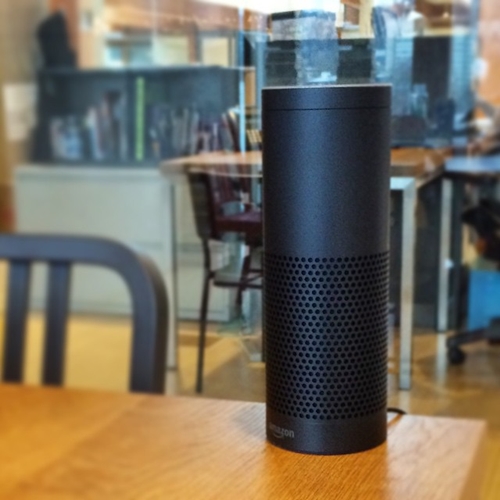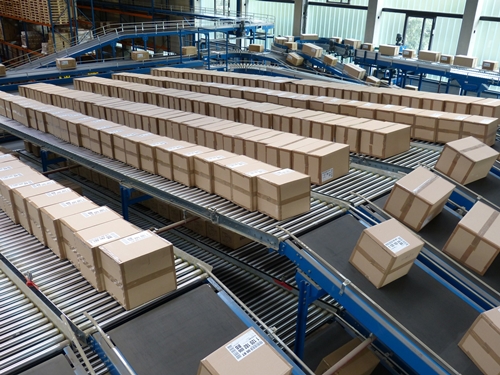– Contributed content –
16 February 2018. “It may change the entire company as a whole” should be her response. An Amazon Echo looks like a fun toy that people can use at home. It’s Siri on steroids, a product indicative of the lazy and needy society we live in today. But, before you get on your high horse, it’s important to note the Internet of Things.
What on earth is the IoT, you ask? Well, it’s a digital presence connecting everyday household items and the internet. Tech nerds have been warning about the ‘apocalypse’ for years and it is finally here thanks to Alexa. Now, syncing devices and turning a house into a smart home is a piece of cake. The same goes for businesses, too.
It isn’t simple to see how this may impact your company, but delve a little deeper and you’ll spot the answers. You’ll see estimates of connected devices by 2020 are predicted close to 30 million. And, this figure suggests the industry could be worth billions within five to ten years. The Internet of Things is here and it’s real, and this is how it will change businesses for better or for worse.
Uber qualified
First thing’s first – the Internet of Things is a new market that is ripe for growth. Like all of these sectors before it, that means there is a huge opportunity for businesses. Starting on the ground floor is often the only way to transform from an SME into an industry leader. Making the switch is never easy, and it won’t get easier without the help of quality, qualified workers. Employees can see the potential pros and cons and use their knowledge to sidestep the major issues. For example, IT technicians constantly analyze servers and check for bugs and hackers. And, everyone from a marketer to a salesperson can do the same with training and further education. What’s music to the ears of bosses is a non-intrusive MBA management online course. Thanks to the World Wide Web, the whole office can learn new skills via a computer after their shift ends.
Size & cost management matter
Every business owner would love to hire as many employees as possible and enter them into training courses. The problem is money. Seminars and lectures aren’t cheap and small companies usually don’t have the funds. So, they decide to hold off investing and continue as normal. The issue from a technological point of view is that bosses can’t afford to procrastinate. Without extra skills, the workforce won’t be able to adapt to a process that is about to take over. As a result, the firm could go bust. Say you do find the finance – what happens next? Well, the skill base gets a boost, but so does the number of people on the payroll as new additions will be inevitable. Taking up space, this fresh influx of people could force the business to move premises. Expanding too quickly is a sure-fire way to bite off more than you can chew and choke. Sorry to be blunt, but it’s the truth.
Fluid data
Big data is a buzz phrase these days as marketers understand the link between info and revenue. In layman’s terms, the more of it a company has, the higher the chances are of making a conversion. As long the people in charge know how to break it down, the business should be able to tweak and repackage to sell more units. Getting hold of this data is difficult in a day and age where privacy is a major talking point. Ask a consumer to reveal their home address and it could put them off making a purchase. What’s great about software such as Alexa and Siri is that people tend to be more comfortable. It’s not that they don’t understand they store data; it’s that they don’t care. The average user would rather ask for info and share it with companies than open a new tab on a mobile device. With synced homes, the chances are you’ll have extra data to make to influence the buying cycle.
1984 backlash
One thing companies have to be aware of is the way customers perceive data ‘leaks.’ If they are unaware the info is being used and shared, they won’t be happy. It doesn’t matter that it was stated in the terms and conditions because it’s still a personal breach. The majority of people think organizations should do more to promote the fact they are studying sensitive data anyway. So, public opinion isn’t and won’t be in your favor. Shoppers who believe your business is part of a ‘1984’, Illuminati-style conspiracy will vote with their feet and never come back. Once the word gets around, the trust will start to erode and that is fatal. The IoT makes collecting data simple, but it can come at a cost which is why it’s vital to be transparent. Stating how the product or service deals with sensitive info is an excellent way to maintain your base’s loyalty.
Eyes on the prize
Businesses that keep their shipping in-house are going to love smart technology because it’s all-seeing. Just set up the software and input the bar codes and nothing should go missing. And, if it does, you can track it down and rectify a mistake with minimal fuss and effort. A feature like this is essential for two reasons. The first is customer service. In a world where consumerism is the king, shoppers want their goods on time and even quicker if possible. At the moment, a lost parcel can add days and weeks to the delivery process, which results in an unsatisfactory level of service. Package trackers will slash the delay times and limit the damage. Secondly, shipping errors tend to cost companies money and lots of it. Although software can be expensive, its ability to solve problems should cut costs in the long-term.
Excuse me?
Companies shouldn’t make promises because there’s no need to give your word in the first place. Guarantees are for suckers. Still, it may not be the fault of the business even when a pledge goes wrong. For instance, the outsourcer may make a mistake which costs them time and reflects on the overall service. It isn’t rare for couriers to waste time or deliver to the wrong address. Unfortunately, tracking software doesn’t provide the firm with a contingency plan. At least with the old system, line managers could blame it on the servers before finding out what was wrong. Now that technology is almost foolproof, businesses don’t have a backup. Customers will expect the service to be infallible, which is a bad thing because errors are a way of life. Sorry to say it, but the IoT could increase expectation and put the company under the microscope.
Houston, do we have a problem?
Syncing an office allows employees to work from home. Modern businesses are finding out that this is a good thing because it cuts costs on things such as overheads. Plus, home-based work increases the balance between life and the office and makes employees feel independent and free. It is worth noting those benefits are for the most part. On the flip side, people have been known to take advantage of working from home by doing the bare minimum and skipping their duties. The result is a decrease in productivity, and that is terrible for revenue and profits. Alexa giveth with one hand and taketh away with the other.
How do you now feel about Alexa? Is she going to be a plus or a minus?
* * *



 RSS - Posts
RSS - Posts
You must be logged in to post a comment.